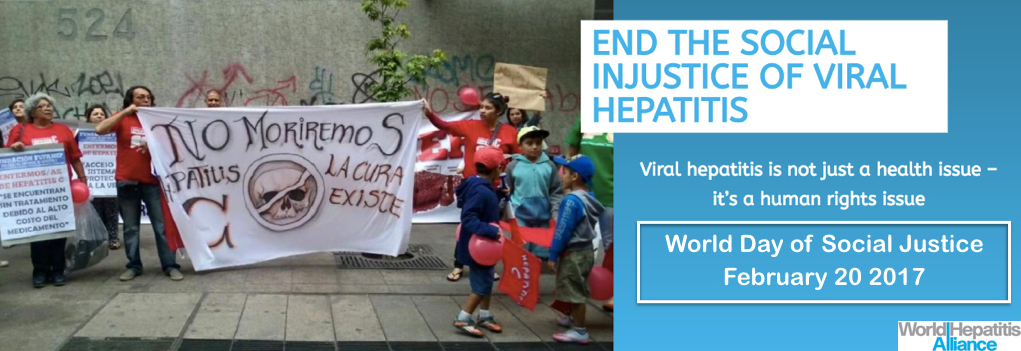
By the time you finish reading this blog, a man, woman or child will have died from viral hepatitis; a disease which can either be completely prevented in the case of hepatitis B or cured for hepatitis C.
Then why is there still a death toll of 1.4 million people every year?
According to the World Health Organization (WHO), “The right to health includes access to timely, acceptable, and affordable health care of appropriate quality”, yet for 99% of people living with viral hepatitis, this basic right is being denied.
“The right to health includes access to timely, acceptable, and affordable health care of appropriate quality”, yet for 99% of people living with viral hepatitis, this basic right is being denied.
Despite the fact that hepatitis C treatment rates have increased since 2013, still only 1% of all people living with the disease received treatment in 2015, and more than a third of those continued to be offered harsher, older, less effective treatments instead of the new all-oral curative drugs.
Yes, access to medicines is a key concern for all of us who fight for social justice, and to aggravate the matter even further, there are other pressing concerns which are further stripping away our global community’s right to health. These are the general lack of awareness about the disease and the stigma and discrimination suffered by so many.
Currently, 95% of people living with viral hepatitis remain undiagnosed and are therefore at a high risk of developing liver cancer. The 5% of patients who know their status often face stigma and discrimination, with only one in five feeling comfortable to disclose their hepatitis condition, as reported in a recent global patient survey carried out by the World Hepatitis Alliance.
Due to the tireless efforts of our members and patient advocates from across the globe, we are beginning to galvanize the political will to fight this disease.
Nonetheless, due to the tireless efforts of our members and patient advocates from across the globe, we are beginning to galvanize the political will to fight this disease. For example, last year saw 194 UN member countries commit to eliminating hepatitis by 2030 through the adoption of WHO’s Global Health Sector Strategy for Viral Hepatitis. This is a major, landscape-changing milestone. Yet, despite this backdrop of improving political interest, we are still faced with an inexcusable death toll and heart-breaking tales of suffering.
Now that we have governments’ commitment on paper, our role is to ensure that they act on it by developing robust responses to the epidemic looking at raising awareness, increasing access to testing and treatment, and putting a stop to stigma and discrimination. There’s a clear imperative to act now, so let’s not lose momentum.
There’s a clear imperative to act now, so let’s not lose momentum.
Today is the World Day of Social Justice, which presents an opportunity for people everywhere to stand up and remind our governments that health is a human right. Remind them that social justice can only be reached when people are well-informed and empowered to create change. Viral hepatitis can be eliminated, but not until we all stand up together and demand our rights.
For more information on the ‘access’ landscape for viral hepatitis, please visit our website. To learn what the Word Hepatitis Alliance is doing to eliminate viral hepatitis check our Strategic Plan 2017-2018.
Comments